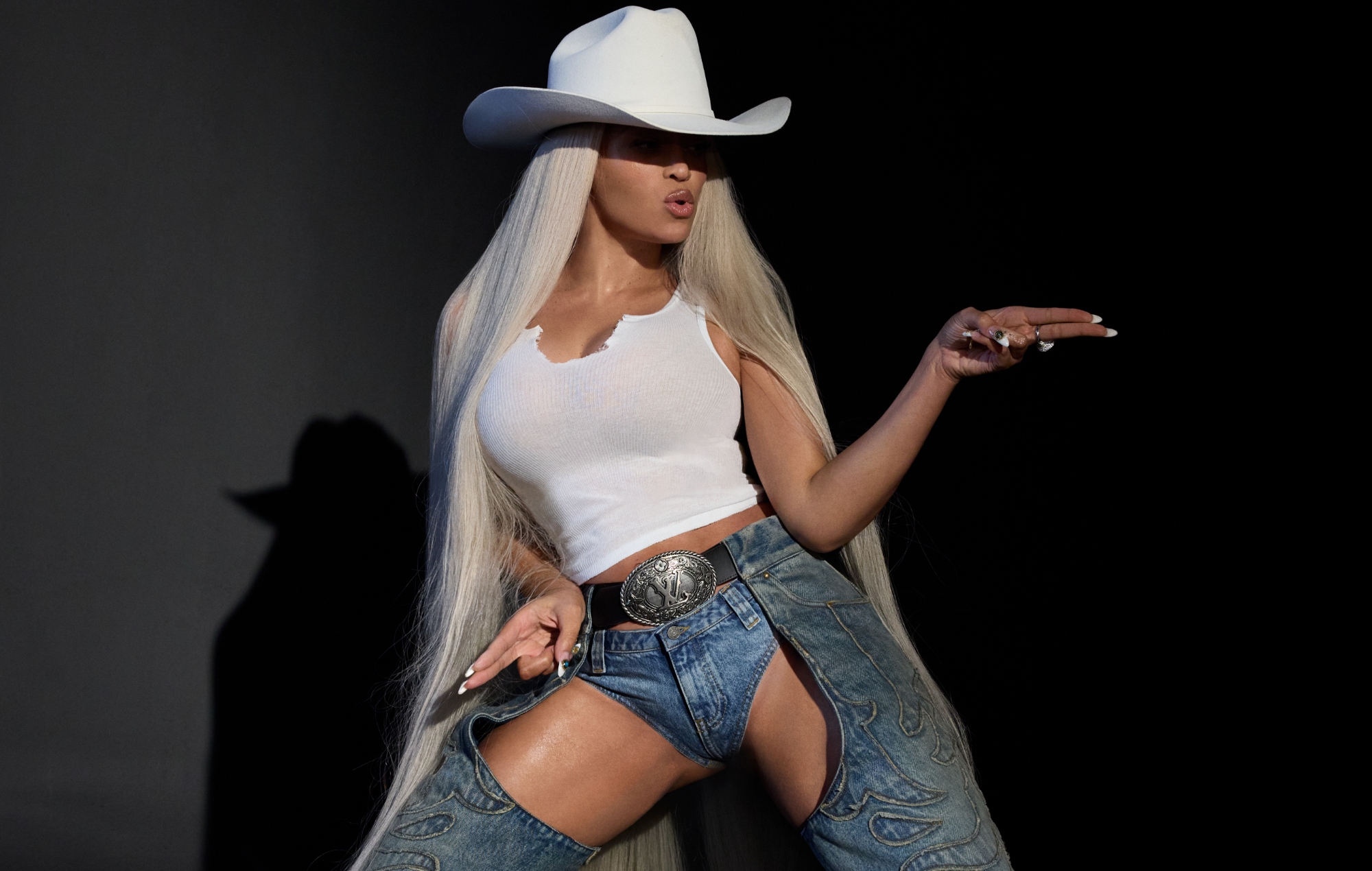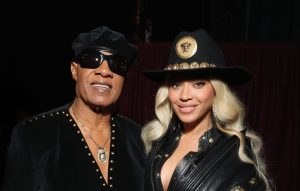At this stage of her career, it’d feel pretty redundant to try and put labels on what Beyoncé Knowles-Carter can and cannot do. In the eight years since her performance with The Chicks at the Country Music Awards drew ire from critics who felt she didn’t ‘belong’, she has brought Black college culture to Coachella, showcased the African diaspora in Disney, and turned both personal and societal hardships into disco-dancing lemonade, platforming LGBTQ+ ballroom and house music.
Her eighth album is another exercise in reclamation and celebration. It’s also deeply personal; where ‘Renaissance’ paid tribute to her Uncle Johnny – a late relative Beyoncé described as “my godmother” – ‘Cowboy Carter’ appears to dig deeper into her Texan/Louisiana-Creole lineage, the Beyoncé family tree and her mother’s maiden name. Doused in her signature blend of eclectic herbs and spices, ‘Cowboy Carter’ is not a straight country album – it also incorporates the blues, funk, folk, soul, opera and gritty southern rap.
The production alone is noteworthy, painting a portrait of richness and precision that highlights Beyoncé’s peerless vocal range. ‘American Requiem’ is a bold, Broadway musical of an opener, with deep vocal squeals and psychedelic nylon guitars framing her thematic frustration: “They used to say I spoke too country / Said I wasn’t country enough / But if that ain’t country, tell me, what is?”
Her cover of The Beatles ‘Blackbird’ is a fairly faithful recreation, but draws all of its power from its symbolism. Here is a poignant civil rights anthem – written by Paul McCartney in 1968 and inspired by the Little Rock Nine – that is shared and sung beautifully with rising Black female stars of country: Tanner Adell, Brittney Spencer, Tiera Kennedy and Reyna Roberts.
By the time we get to the cool road-trip breeze of ‘Bodyguard’, the boot-scooting fun really kicks in. Introduced by ‘Dolly P’ herself, ‘Jolene’ reframes a classic, promising heat if Miss J even thinks about stepping to her man. A warning rather than a lament, it trades away some of the visceral agony of the original, but is a playful addition to ‘Becky with the good hair’ lore, outing Yoncé as a “Creole banjee bitch from Louisianne.” Jay-Z would do well to avert his own eyes during ‘Levii’s Jeans’, a raunchy duet with Post Malone that recalls the sherbet sunsets of ’70s radio rock.
‘Spaghetti’ meanwhile, is served deliciously al dente, a trap-rap shoot-‘em-up that goes spur-to-spur with rising country rapper Shaboozey. It also offers our first album introduction to Linda Martell, the legendary country star who was the first Black woman to play the Grand Ole Opry, a radio broadcast that is a stalwart of the US country scene; “Genres are a funny little concept, ain’t they?” she teases.
Martell re-appears on ‘The Linda Martell Show’, switching the dial firmly to ‘Black’ for the record’s final frontier. ‘Ya Ya’ is the full-circle Tina Turner moment that Beyoncé’s been building up to for years, referencing the Chitlin circuit (venues in which Black artists were allowed to perform during the segregation era), sampling Nancy Sinatra, and having a whole lot of fun with some decolonial home truths: “Whole lotta red / In that white and blue, huh / History can’t be erased”.
A further interpolation comes via the Beach Boys, laying down good vibrations as she shakes, rattles and rolls her way through the history books with the confidence of somebody who firmly belongs within them. Alongside ‘Riiverdance’ (co-written by RAYE) and ‘Tyrant’, it’s one of the most impressive, genre-fusing works of her career, and a clear bridge to the energy and pace of ‘Renaissance’.
In the age of stan culture, sceptics will argue that objective criticism of Beyoncé can feel hard to come by. Those who don’t already love country may find some of ‘Cowboy Carter’s balladeering sections to be a little long, or query whether an artist of Beyoncé’s stature is invoking certain ironies when she rallies her audience to “stand for something”, given her own relative quiet on recent political affairs. But even if interpreted only on the grounds of artistic spectacle, it’s an undeniable thrill to see her swing so big on a project that dares her to be so intimate and vocal-focused, while making way for country’s up-and-comers too.
All that remains now is to speculate on which horse she’ll ride in on for the trilogy’s final part. An R&B-themed Destiny’s Child reunion? A hyper-pop odyssey? A gospel tome? Our wishful thinking is that she’ll opt for a rollicking tribute to Black rock’n’roll, but whatever Queen B decides, you can bet your last dime that it’ll be a lovingly executed education, sparkling with the joy of a truly unbridled creative mind.
Details
Release date: March 29, 2024
Record label: Parkwood/Columbia
The post Beyoncé – ‘Cowboy Carter’ review: country reinvention strikes gold appeared first on NME.




